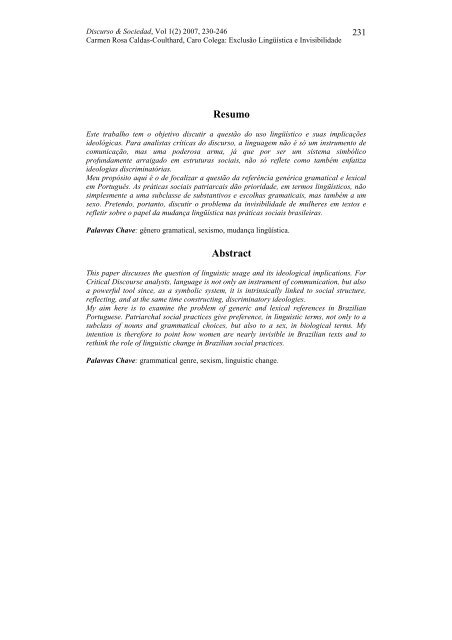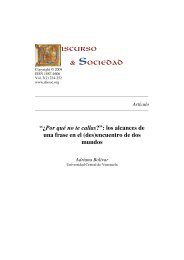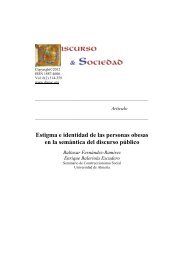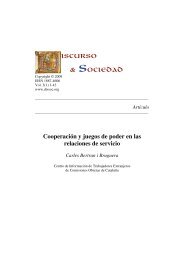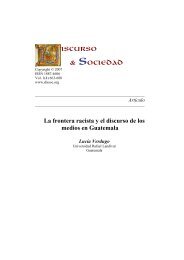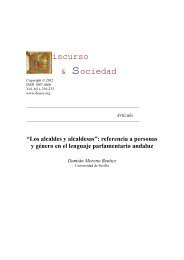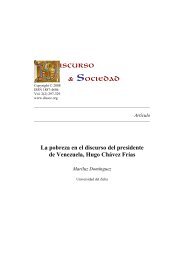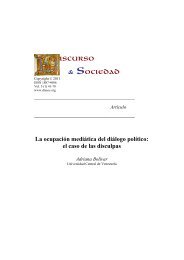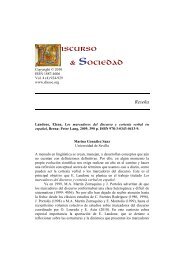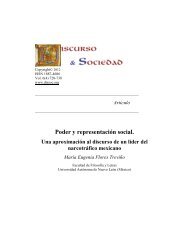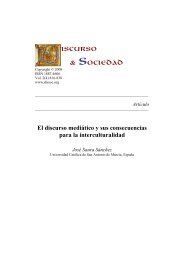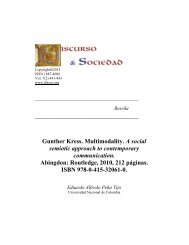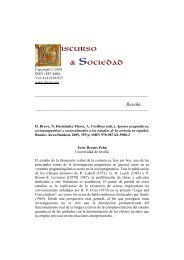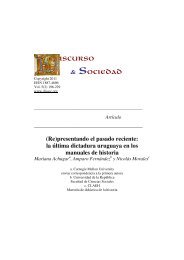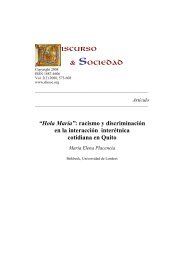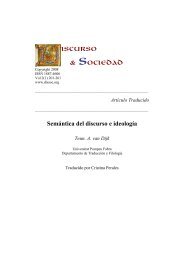Caro Colega: Exclusão lingüística e invisibilidade
Caro Colega: Exclusão lingüística e invisibilidade
Caro Colega: Exclusão lingüística e invisibilidade
You also want an ePaper? Increase the reach of your titles
YUMPU automatically turns print PDFs into web optimized ePapers that Google loves.
Discurso & Sociedad, Vol 1(2) 2007, 230-246<br />
Carmen Rosa Caldas-Coulthard, <strong>Caro</strong> <strong>Colega</strong>: <strong>Exclusão</strong> Lingüística e Invisibilidade<br />
Resumo<br />
Este trabalho tem o objetivo discutir a questão do uso lingüístico e suas implicações<br />
ideológicas. Para analistas críticas do discurso, a linguagem não é só um instrumento de<br />
comunicação, mas uma poderosa arma, já que por ser um sistema simbólico<br />
profundamente arraigado em estruturas sociais, não só reflete como também enfatiza<br />
ideologias discriminatórias.<br />
Meu propósito aqui é o de focalizar a questão da referência genérica gramatical e lexical<br />
em Português. As práticas sociais patriarcais dão prioridade, em termos lingüísticos, não<br />
simplesmente a uma subclasse de substantivos e escolhas gramaticais, mas também a um<br />
sexo. Pretendo, portanto, discutir o problema da <strong>invisibilidade</strong> de mulheres em textos e<br />
refletir sobre o papel da mudança <strong>lingüística</strong> nas práticas sociais brasileiras.<br />
Palavras Chave: gênero gramatical, sexismo, mudança <strong>lingüística</strong>.<br />
Abstract<br />
This paper discusses the question of linguistic usage and its ideological implications. For<br />
Critical Discourse analysts, language is not only an instrument of communication, but also<br />
a powerful tool since, as a symbolic system, it is intrinsically linked to social structure,<br />
reflecting, and at the same time constructing, discriminatory ideologies.<br />
My aim here is to examine the problem of generic and lexical references in Brazilian<br />
Portuguese. Patriarchal social practices give preference, in linguistic terms, not only to a<br />
subclass of nouns and grammatical choices, but also to a sex, in biological terms. My<br />
intention is therefore to point how women are nearly invisible in Brazilian texts and to<br />
rethink the role of linguistic change in Brazilian social practices.<br />
Palavras Chave: grammatical genre, sexism, linguistic change.<br />
231


